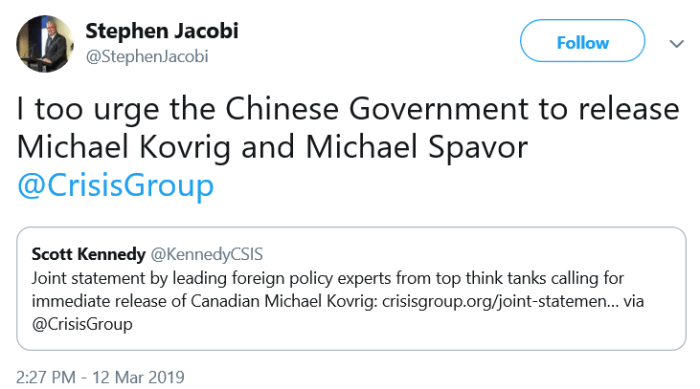I was about to settle in for the rest of the afternoon writing a review article of an interesting (but obscure) book on aspects of US monetary policy, when a reader sent me a link to an astonishing article from the New Zealand Police website. In it we read
As he prepares to bring down the curtain on eight years as our man in Beijing, Assistant Commissioner Hamish McCardle has received a rare honour from his hosts.
He has been appointed Visiting Professor at the People’s Public Security University of China – the first foreigner to hold such a role.
The university is where China’s Ministry of Public Security (MPS) trains the elite of China’s police. …..
The university and the Royal New Zealand Police College have had a bilateral training relationship since 2016. ……
He says the university appointment is an endorsement of the healthy state of the New Zealand-China bilateral relationship, and “underscores the idea that New Zealand has values and ideas worth considering in the Chinese context”.
It also aligns with the aims and values of the New Zealand-China Friendship Society and the pioneering work of New Zealander Rewi Alley who fostered a life-long friendship with China from the 1930s.
I don’t have any particular problem with Police having a person in our embassy in Beijing. The day job had “a focus on disrupting the flow of drugs and precursors to New Zealand”. That sounds fine.
But in accepting this “honour”, have the Police, MFAT, and their political masters lost sight completely any sort of moral compass?
The People’s Republic of China is a country where the Chief Justice himself proclaims that the rule of law is not something for China. The Party rules. It is a country where the Ministry for Public Security plays a key role in imprisioning a million or more people in Xinjiang. I’m sure they do basic policing work as well – Chinese have road accidents, and break-ins just as we do – but this is the New Zealand government actively participating – on a ongoing basis – in making the repressive apparatus of the PRC state better and more effective at doing its job. A big part of that job is an instrument of systematic repression – political, religious, or whatever. Political loyalty – to the CCP – is, not surprisingly, a key element in recruitment, and presumably even more so at those studying to be “the elite of China’s police”.
And what about that weird stuff in the final paragraph of the quoted excerpt? The New Zealand-China Friendship Society has been around for decades and long-served as a Beijing front organisation in New Zealand, right through the horrors of the Great Leap Forward, the Cultural Revolution, and on to their total silence today about repression in Xinjiang. And Rewi Alley? Well, he lived a fairly comfortable life in Beijing after the CCP took over, navigating this way through the thickets of changing CCP politics, reaching new lows when he published a jointly-authored book near the end of the Cultural Revolution defending the regime at its worst. What possesses our Police to think these are “aims and values” to champion? Why not, for example, the aims and values of the Tiananmen protestors, the Falun Gong movement, or the (underground) Catholic church? But that wouldn’t fit the narrative I guess, of prostrating the New Zealand system before Beijing.
Presumably Mr McCardle is a perfectly decent chap, and probably won’t think of trying to import PRC methods to New Zealand policing on his return? But did he not in the seven years he has been lecturing at this university already, or does he not now, feel any qualms of conscience at all about abetting evil? Because that is a big part of what the Ministry of Public Security, elite and otherwise, actually does.
And what of our subservient and deferential politicians? Does the Minister of Foreign Affairs really feel comfortable with this “honour”? ( I assume his officials at MFAT think it is just wonderful). What about the Minister of Police? Or the Prime Minister?
Or Simon Bridges or Todd McClay? Or do all our MPs just think it is totally fine – quite an honour in fact – for the New Zealand government to be helping the PRC better repress its citizens, better repress freedom, free expression, free worship, free assembly or whatever?
It is a small thing in a way. But a succession of individually small things build up to a narrative of a government system – from the top down – more interested in getting along, and supporting, this evil regime doing its work – mercenaries, in effect, for trade deals and political donations – than in representing the interests, values, and traditions of New Zealanders. For Mike Bush and the New Zealand Police it seems that the values of the China Friendship Society and Rewi Alley count for more.
That’s shameful.

